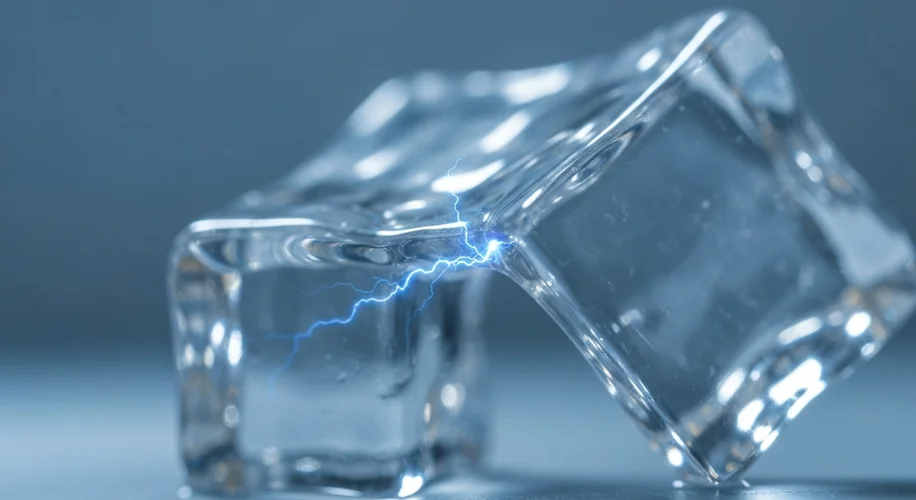Did you know that ice, that familiar frozen water, can actually generate electricity when you bend it? It sounds like something out of science fiction, but researchers have recently discovered just that!
This isn’t about freezing your electric bill, but it’s a fascinating glimpse into how physical forces can interact with materials in unexpected ways. The science behind this phenomenon is called the piezoelectric effect. You might have heard of it before, as it’s what allows things like lighters to create a spark when you click them, or how some gas grills ignite. Certain materials, when squeezed or bent, produce an electric charge.
What’s really cool is that scientists found that ice, specifically its crystalline structure, exhibits this effect. Imagine applying pressure to a piece of ice, and suddenly, you’re generating a small electrical current. This discovery opens up new avenues for understanding physical processes, especially in environments where ice is prevalent, like our polar regions.
While we’re not going to be powering our homes with frozen puddles anytime soon, this research has some intriguing implications. It could help us better understand the physics of glaciers and ice sheets, perhaps even leading to new ways to study their behavior. Think about it – instruments that could generate their own power simply from the movement and pressure within the ice itself.
It also adds another layer to our understanding of how energy can be harvested from our surroundings. As we continue to explore sustainable energy sources, discovering new ways that natural materials can produce electricity is always exciting. It reminds us that there’s still so much to learn from the world around us, even from something as common as ice.
This finding really highlights the beauty of scientific exploration. Sometimes, the most surprising discoveries come from looking at familiar things in a completely new light. So, the next time you see ice, remember that it’s not just frozen water; it’s a material with hidden electrical talents!

